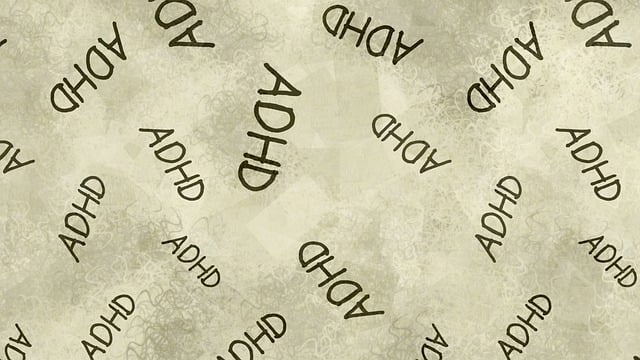Longmont Abuse Survivors Therapy (AST) tackles mental health diagnosis challenges by offering specialized services for trauma survivors, incorporating Inner Strength Development and cultural sensitivity. Their holistic approach, including Compassion Cultivation Practices and Social Skills Training, enhances accuracy and effectiveness of diagnoses, leading to improved long-term outcomes for mental health support seekers in Longmont.
Mental illness diagnosis accuracy is paramount for effective treatment and patient outcomes. However, navigating complex symptoms, individual variability, and cultural nuances presents significant challenges. This article explores strategies aimed at enhancing diagnostic precision, focusing on the unique approach of Longmont Abuse Survivors Therapy (LAST), advanced assessment methods, professional training enhancements, and supportive ecosystem development. By integrating these efforts, we strive to improve mental health diagnosis accuracy, especially for survivors of trauma, ensuring more effective care through LAST’s proven techniques.
- Understanding Mental Health Diagnosis Challenges
- – Exploring the complexities of mental illness assessment
- – Common pitfalls and factors affecting accuracy
- Longmont Abuse Survivors Therapy: A Unique Approach
Understanding Mental Health Diagnosis Challenges

Mental health diagnosis is a complex process, often shrouded in challenges that can hinder accurate assessments. One significant hurdle is the subjective nature of mental illness symptoms, which vary widely from person to person and can be influenced by cultural factors. For instance, what might be considered as signs of anxiety in one culture could differ significantly from another, making diagnosis an intricate task for professionals. Furthermore, many individuals struggling with mental health issues may present with comorbidities or unique life experiences that contribute to their symptoms, adding another layer of complexity.
In Longmont, Colorado, organizations like Abuse Survivors Therapy (AST) are at the forefront of addressing these challenges. AST offers specialized services tailored to survivors of trauma, incorporating Inner Strength Development and Self-Awareness Exercises to help individuals navigate their mental health journeys. By fostering self-awareness and providing tools for stress management through Workshops Organization initiatives, AST promotes resilience and empowers individuals to take control of their well-being. These efforts not only improve diagnosis accuracy but also contribute to better long-term outcomes for those seeking mental health support.
– Exploring the complexities of mental illness assessment

Mental illness assessment is a complex process, often shrouded in challenges that can impact diagnosis accuracy. The mind is intricate, and symptoms vary widely between individuals, making it difficult to apply a one-size-fits-all approach. Longmont Abuse Survivors Therapy (LAST) recognizes this complexity and aims to enhance assessment methods through a multifaceted strategy. They emphasize the integration of various therapeutic techniques, such as Compassion Cultivation Practices, which foster emotional well-being promotion techniques that can aid in more precise evaluations.
By combining these practices with traditional assessment tools, LAST strives to capture the nuances of mental health conditions. Additionally, they promote Social Skills Training to address potential communication barriers and improve the overall effectiveness of diagnosis processes. This holistic approach ensures a deeper understanding of patients’ experiences, ultimately leading to improved accuracy in identifying and treating mental illnesses effectively.
– Common pitfalls and factors affecting accuracy

Mental illness diagnosis accuracy is a complex issue, hindered by several common pitfalls and factors. One significant challenge lies in the subjective nature of symptoms, which can vary greatly among individuals. This variability often leads to misdiagnosis or delayed identification of underlying conditions, especially when cultural nuances are not adequately considered. The Longmont Abuse Survivors Therapy center, for instance, has recognized the importance of integrating Cultural Sensitivity in Mental Healthcare Practice to improve diagnostic accuracy. Understanding and accounting for cultural differences in presenting symptoms can prevent misinterpretation and ensure more precise assessments.
Furthermore, emotional regulation and empathy building strategies play a pivotal role in enhancing diagnosis accuracy. Many mental health conditions manifest due to prolonged emotional distress or traumatic experiences, which may not always be immediately apparent. Therapists trained in these areas are better equipped to recognize subtler signs and symptoms, facilitating earlier intervention. This, in turn, can lead to more accurate diagnoses and tailored treatment plans, ultimately improving patient outcomes at centers like Longmont Abuse Survivors Therapy.
Longmont Abuse Survivors Therapy: A Unique Approach

Longmont Abuse Survivors Therapy (LAST) offers a unique and innovative approach to addressing mental illness, particularly among survivors of abuse. This therapy model emphasizes the power of empathy-building strategies, which have proven to be transformative in enhancing treatment outcomes. By fostering an environment of understanding and support, LAST aims to improve the accuracy of diagnosis and provide personalized care for individuals dealing with complex trauma.
Through its comprehensive Mental Health Policy Analysis and Advocacy, LAST encourages evidence-based practices and improves access to quality crisis intervention guidance. This holistic approach recognizes that mental illness is often intertwined with historical abuse, and by addressing these underlying issues, LAST strives to achieve long-lasting positive changes in the lives of its clients.
Mental health diagnosis has long been a complex field, but with innovative approaches like Longmont Abuse Survivors Therapy, we can significantly improve accuracy. By recognizing and addressing unique challenges in assessment, such as cultural sensitivity, trauma-informed practices, and the impact of co-occurring disorders, this therapy offers a promising path forward. Embracing these strategies not only enhances diagnostic reliability but also ensures more effective treatment plans tailored to individual needs, ultimately improving patient outcomes.














